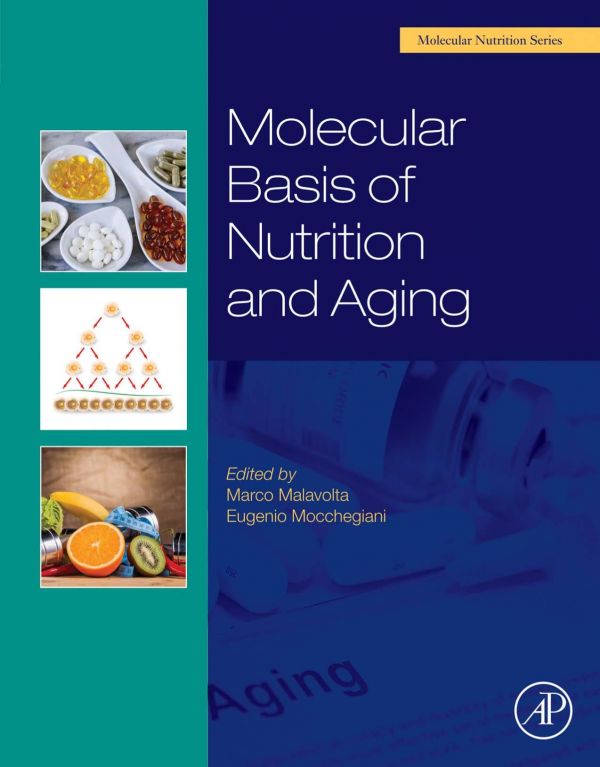

Most ebook files are in PDF format, so you can easily read them using various software such as Foxit Reader or directly on the Google Chrome browser.
Some ebook files are released by publishers in other formats such as .awz, .mobi, .epub, .fb2, etc. You may need to install specific software to read these formats on mobile/PC, such as Calibre.
Please read the tutorial at this link. https://ebooknice.com/page/post?id=faq
We offer FREE conversion to the popular formats you request; however, this may take some time. Therefore, right after payment, please email us, and we will try to provide the service as quickly as possible.
For some exceptional file formats or broken links (if any), please refrain from opening any disputes. Instead, email us first, and we will try to assist within a maximum of 6 hours.
EbookNice Team

Status:
Available5.0
15 reviewsMolecular Basis of Nutrition and Aging: A Volume in the Molecular Nutrition Series focuses on the nutritional issues associated with aging and the important metabolic consequences of diet, nutrition, and health. The book is subdivided into four parts that reflect the impact of nutrition from a biomolecular level to individual health.
In Part One, chapters explore the general aspects of aging, aging phenotypes, and relevant aspects of nutrition related to the elderly and healthy aging. Part Two includes molecular and cellular targets of nutrition in aging, with chapters exploring lipid peroxidation, inflammaging, anabolic and catabolic signaling, epigenetics, DNA damage and repair, redox homeostasis, and insulin sensitivity, among others.
Part Three looks at system-level and organ targets of nutrition in aging, including a variety of tissues, systems, and diseases, such as immune function, the cardiovascular system, the brain and dementia, muscle, bone, lung, and many others. Finally, Part Four focuses on the health effects of specific dietary compounds and dietary interventions in aging, including vitamin D, retinol, curcumin, folate, iron, potassium, calcium, magnesium, zinc, copper, selenium, iodine, vitamin B, fish oil, vitamin E, resveratrol, polyphenols, vegetables, and fruit, as well as the current nutritional recommendations.